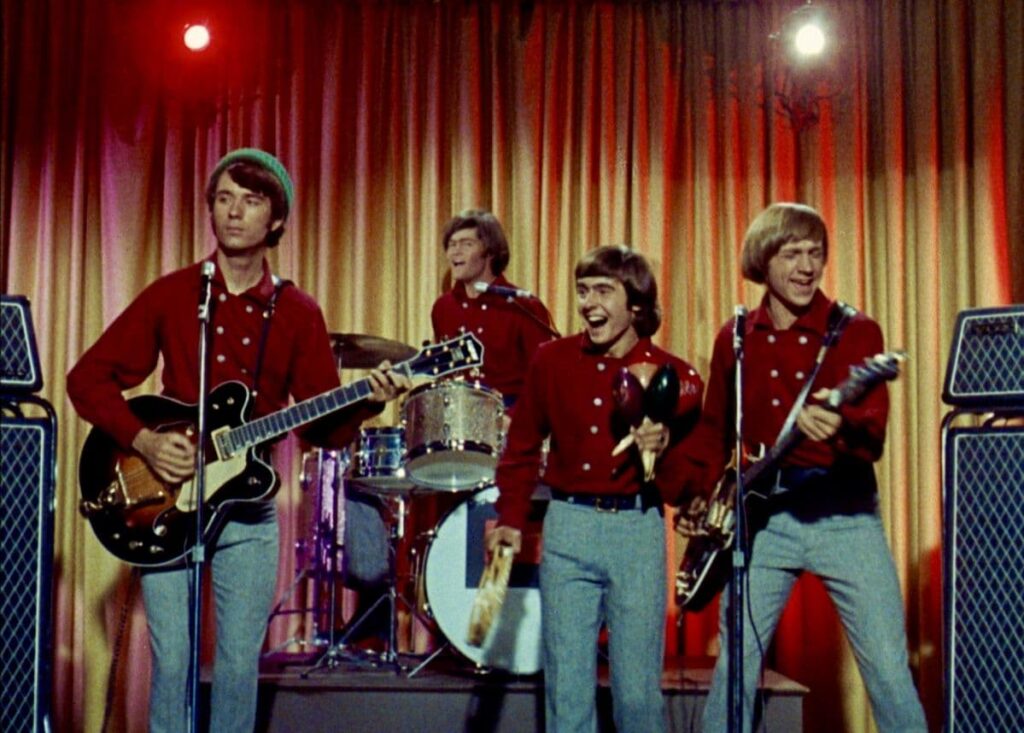
Me & Magdalena: The Unspoken Sorrow of Fading Innocence
In the grand and often chaotic tapestry of 1960s pop culture, few groups burned as brightly and briefly as The Monkees. They were a manufactured phenomenon, a band for television, yet their music often transcended the glossy, sitcom packaging. For many, their songs are sonic snapshots of a simpler time—of bell-bottoms, day-glo colors, and the boundless optimism of a counterculture in its infancy. But hidden within their later catalog, a jewel of quiet, profound sorrow lies waiting to be rediscovered, a song that speaks not of youthful exuberance, but of the gentle, heartbreaking march of time: “Me & Magdalena.”
This is not the frothy, pop-rock sound of “I’m a Believer” or the psychedelic swirl of “Pleasant Valley Sunday.” Instead, it is an elegy, a tender, acoustic reflection on a past that can never be reclaimed. Released in 2016 on the album “Good Times!”, “Me & Magdalena” marked a poignant reunion for a band that had long been scattered to the winds. The album itself, a testament to their enduring legacy, was a commercial success, reaching number 14 on the Billboard 200 chart. But within that success, this track stands out as a stark, emotional centerpiece, a late-career masterpiece that whispers its story rather than shouting it.
The story behind “Me & Magdalena” is as compelling as the song itself. It was penned by the brilliant and prolific songwriter Ben Gibbard, the frontman of Death Cab for Cutie. Gibbard, a long-time fan, wrote the song specifically for The Monkees, a tribute to the enduring power of their music and a recognition of their mature artistry. The song was originally intended for Micky Dolenz, but it was Michael Nesmith who ultimately sang the lead vocals, and it is his voice, with its world-weary and soulful timbre, that gives the song its devastating weight. He brings a lifetime of experience to every syllable, transforming Gibbard’s lyrics into a deeply personal confession.
The meaning of “Me & Magdalena” is open to interpretation, but its core theme is undeniable: the bittersweet nature of memory and the quiet ache of a love that has endured the passage of time. The lyrics paint a picture of two people, perhaps a married couple, looking back on their youth and realizing that the carefree abandon of their past has been replaced by the weary wisdom of their present. The lines “We’re just waiting for a change to come” and “The kids have all grown up and moved away” are particularly resonant, speaking to a universal experience of aging and the bittersweet solitude that often accompanies it. This isn’t a song about a breakup or a grand tragedy; it’s about the small, everyday sorrows of life—the fading of a dream, the quiet resignation to a new reality.
For those who grew up with The Monkees, “Me & Magdalena” is a mirror. It reflects not the youthful versions of ourselves that we remember dancing to “Daydream Believer,” but the older, more contemplative people we have become. It’s a reminder that even the most exuberant chapters of our lives eventually come to a close, but that the memories—both sweet and sorrowful—remain. The song is a beautiful and fitting coda to the band’s career, a final, honest look at what it means to grow old and to still be waiting for a change to come, hand in hand with the one you love. It’s a song for the quiet moments, for late nights and long drives, and for anyone who understands that the most profound feelings are often those that are left unspoken.